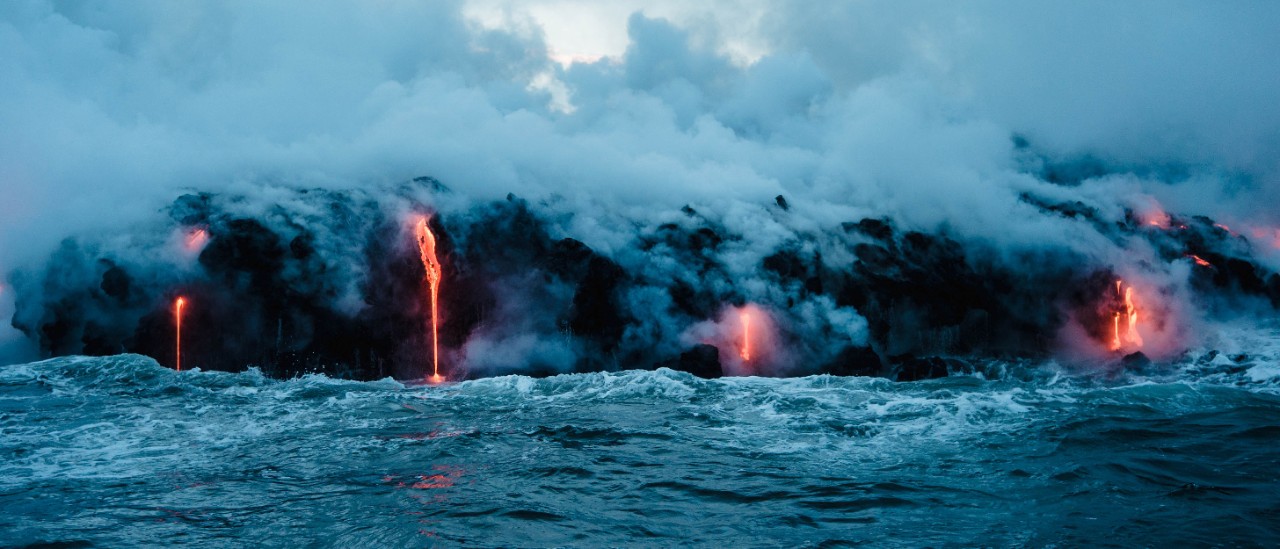
WLW: UC geologist explains giant floating rock in Pacific
Thomas Algeo tells "Eddie and Rocky" the pumice island will disappear over time
"Eddie and Rocky" on 700-WLW spoke to University of Cincinnati geologist Thomas Algeo about the discovery this month of a giant island of rock floating in the Pacific Ocean off Australia.
A couple sailing in the South Pacific reported finding an island of pumice the size of Manhattan floating off Tonga, according to CNN.

UC geologist Thomas Algeo. Photo/Joseph Fuqua II/UC Creative Services
Algeo, a professor of geology in UC's McMicken College of Art and Sciences, said the island was formed from a volcanic eruption deep underwater.
"The rock floats because it's full of air bubbles," Algeo told show hosts Eddie Fingers and Rocky Boiman. "The air bubbles form in the lava. A pumice rock can consist of up to 90 percent air bubbles. That allows it to float. It's actually less dense than water."
News accounts suggested the pumice island could help the imperiled Great Barrier Reef. But Algeo said any benefits would be short lived.
"It might have a very positive short-term influence," he said. "A lot of marine organisms can latch onto these pumice fragments. You might repopulate some corals in the Great Barrier Reef from pumice floating in. But the main stresses on the Great Barrier Reef are much greater than that."
Algeo said half of the reef has died because of recent warming of ocean currents.
As for the pumice island? Algeo said once the gas escapes from the rock, the pumice eventually will sink to the ocean floor.
Featured image at top: Lava from an eruption pours into the ocean. Photo/Buzz Andersen/Unsplash
Related Stories
There once was a biologist who talked to spiders …
July 9, 2025
UC biologist and spider expert Nathan Morehouse helped a writing collaboration at Kent University explore our common ground with these eight-legged creatures that fascinate us.
New Dungeons & Dragons ethics seminar takes flight
July 7, 2025
On a blisteringly hot summer day, laughter echoed through the cool, damp basement of the Avondale branch of the Cincinnati Public Library. Young teenagers huddled around a table littered with pencils and paper, rolling dice and bonding over a game of Dungeons & Dragons. University of Cincinnati undergraduate student Charitha Anamala sat behind a trifold card with a blazing red dragon on it, serving as the group’s Dungeon Master (DM) or campaign organizer. Within the fantasy setting she described, it was hard to tell the adventure was a lesson in ethics.
UC language studies program adopts new technologies
July 7, 2025
Cultural immersion is a tried-and-true method for teaching languages. U.S. students travel abroad—to Europe, Latin America, Asia and beyond to take a deep dive into the customs, mores, daily life and conversational language that can be challenging to master from home. For those students who can't take advantage of the study-abroad experience, there's another option to gain the same learnings. At UC, the Curricular Enhancement, Development, Access and Research Language Resource Center (CEDAR) has developed a curriculum that features virtual reality (VR) technology to give students a similar opportunity right in the classroom.
